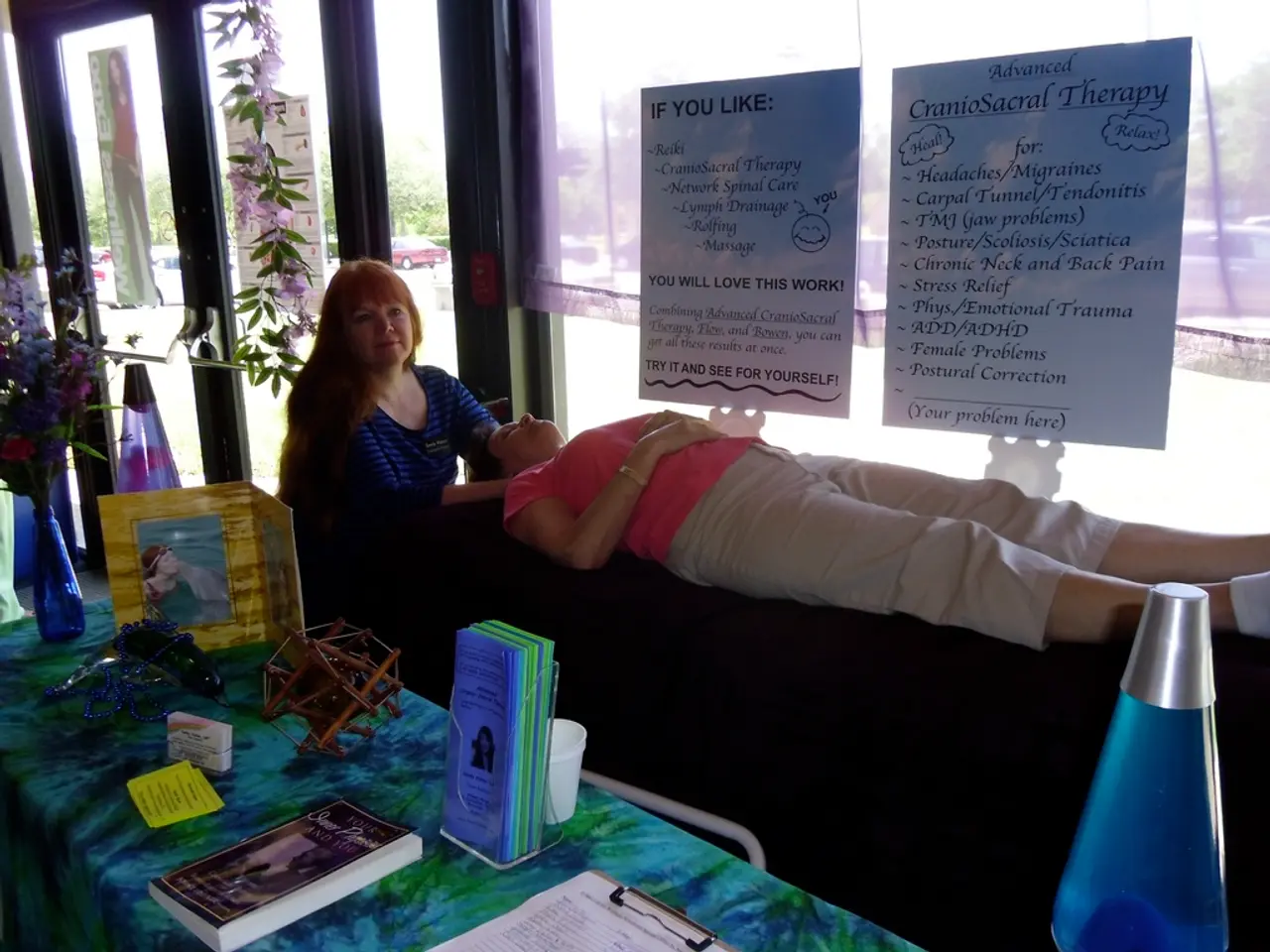Symptoms, origins, and therapies associated with Post-Traumatic Stress Disorder (PTSD)
Post-Traumatic Stress Disorder (PTSD) is a condition that can develop following a traumatic event that threatens one's safety. Common traumatic events that can lead to PTSD include war, natural disasters, car or plane crashes, terrorist attacks, sudden death of a loved one, sexual or physical assault, domestic abuse, and neglect.
PTSD is not limited to those who personally experience a traumatic event; it also affects witnesses, emergency workers, law enforcement officers, and family members of the traumatized. The condition can have a profound impact on an individual's emotional and psychological well-being, as well as their physical health.
Reconnecting emotionally is crucial for PTSD recovery. Helpguide offers a free online program that teaches you how to reconnect to your physical and emotional feelings. Reaching out to others for support can help calm the nervous system, which is important for PTSD recovery. Helplines and support for PTSD are available in various countries, including the U.S., UK, Australia, and Canada.
Helping someone with PTSD involves understanding their symptoms and taking steps to help them move on from the trauma, take back control of their life, and enable the relationship to return to normal. Types of PTSD treatment and therapies include trauma-focused cognitive-behavioral therapy, family therapy, medication, and EMDR (Eye Movement Desensitization and Reprocessing).
Complex PTSD (CPTSD), caused by chronic exposure to traumatic events, is considered more severe than PTSD. Symptoms include negative thoughts about oneself, difficulty controlling emotions, difficulty with relationships, and dissociation.
PTSD symptoms can last for more than a month and can make it hard for a person to work or function normally. Symptoms of PTSD include intrusive memories, avoidance, increased anxiety and emotional arousal, and negative thought and mood changes.
Recovering from PTSD involves helping the nervous system return to its pre-trauma state of balance. Tips for recovery include challenging one's sense of helplessness, engaging in positive ways of coping, getting moving, and spending time in nature. Early treatment of PTSD is better for recovery outcomes.
For veterans with PTSD, specialized VA PTSD treatment options are available in the U.S. When looking for a therapist, seek out mental health professionals who specialize in the treatment of trauma and PTSD. Joining a PTSD support group can help you feel less isolated and alone and provide invaluable information on how to cope with symptoms and work towards recovery.
It's important to find someone you can connect with face to face for an uninterrupted period of time. Adopting a healthy lifestyle is important for managing PTSD symptoms. This includes taking time to relax, avoiding alcohol and drugs, eating a healthy diet, getting enough sleep, and getting professional treatment for PTSD.
PTSD can be related to other health problems. Getting help for PTSD could also improve physical health. Volunteering your time or reaching out to a friend in need can help reclaim a sense of control. PTSD symptoms can get in the way of family life and relationships. Getting help for PTSD can improve family life.
In children, PTSD can involve fear of being separated from their parent, losing previously-acquired skills, sleep problems and nightmares, somber, compulsive play, new phobias and anxieties, acting out the trauma through play, stories, or drawings, aches and pains with no apparent cause, irritability and aggression.
Social interaction with someone who cares about you is vital to your recovery from PTSD. PTSD may be triggered by both single-incident traumatic events and repeated or prolonged trauma, with the latter often resulting in more complex symptoms. Triggers for PTSD flashbacks or symptoms can include sensory reminders of the trauma, such as sights, sounds, smells, or even anniversaries of the event.
In summary, PTSD commonly develops after experiences that involve threats to life, bodily integrity, or sustained emotional harm, and these events span a broad spectrum including violence, accidents, disasters, and combat. If you or someone you know is struggling with PTSD, seeking help is crucial for recovery and improving overall quality of life.
Engaging in science-backed health-and-wellness practices, such as trauma-focused cognitive-behavioral therapy and EMDR (Eye Movement Desensitization and Reprocessing), can significantly enhance mental-health and aid in the coping skills needed for PTSD recovery. Regular participation in support groups that specialize in PTSD can help individuals better understand their symptoms and provide a supportive community, offering valuable insights into coping strategies and recovery techniques.




